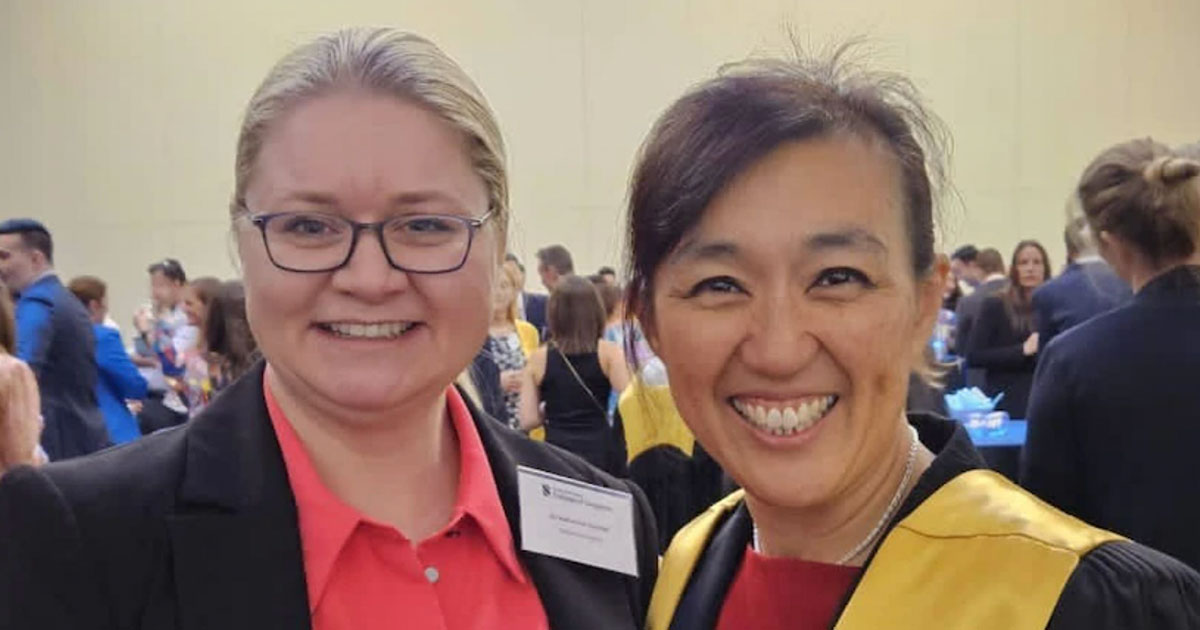Raising Awareness of Bowel Cancer with Dr Carina Chow

This June is Bowel Cancer Awareness Month and Colorectal Surgeon Carina Chow said awareness is incredibly important at detecting this disease.
A report from the Australian Institute of Health Innovation has found the global incidence of bowel cancer in younger people has been rising steadily over the past three decades.
Each year over 1600 Australian’s under the age of 50 are diagnosed with early onset bowel cancer which is the deadliest cancer for people aged between 20 and 50.
Dr Carina Chow said she has since a spike in younger patients presenting with bowel cancer in recent years.
“Bowel cancer is the deadliest cancer and the sixth leading cause of death overall for Australians aged 25-44,” Dr Chow said.
“Unfortunately, it can take younger patients 60 per cent longer to be diagnosed as their symptoms can be mistaken for other conditions like haemorrhoids or Inflammatory Bowel Disease.
“It is important that younger patients presenting with the red flag symptoms of bowel cancer like blood in the stool, a change in bowel habit, abdominal pain, unexplained weight loss, iron deficiency anaemia and a family history of the disease are screened appropriately.”
Dr Chow explained the statistics are alarming as people born in 1990 onwards have double the risk of colon cancer and quadruple the risk of rectal cancer compared with people born in 1950.
“We do know that lifestyle factors play a huge role in the risk factor for most cancers but especially bowel cancer” Dr Chow said.
Dr Chow explained she has had to change conversation around treatment to incorporate younger patients.
“I would previously work with my older patients who after treatment would need things like home assistance services or even move them in to aged care,” Dr Chow said.
“Now, my patients are younger and we need to consider things like fertility, freezing their eggs before chemotherapy, planning how they are going to manage cancer and a young family, planning how they are going to manage work and finances during their cancer journey. It’s not an easy thing to do.
“Lifestyle and genetic factors do play a role, changes to lifestyle like healthy eating, cessation of smoking and reduction in alcohol can help but sadly I do see younger people who are otherwise healthy, eat well and exercise regularly and still have bowel cancer.”
According to Bowel Cancer Australia, patients under 50 have an increased risk of developing bowel cancer when they experience one or more of the following symptoms between three months and two years prior to diagnosis:
- Abdominal pain
- Rectal bleeding
- Change in bowel habit (constipation or diarrhoea)
- Iron deficiency anaemia
- Unexplained weight loss
Australians are eligible to take part in the National Bowel Cancer Screening Program from the age of 50.
People with a family history of bowel cancer are encouraged to have regular colonoscopies starting 10 years prior to their first-degree relative’s diagnosis. For example, if your mother was diagnosed at 45-years-old with bowel cancer you should start having colonoscopies at 35-years-old.














